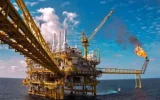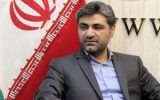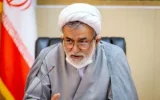
Vitol CEO announced: Despite previous estimates of oversupply, geopolitical pressures have left global oil markets facing a shortage.

The executor of the Phase 13 development plan of the South Pars Joint Field announced the production of a new well in the project and said: "With the exploitation of this well, daily gas extraction from Phase 13 of South Pars increased by more than 1.5 million cubic meters."

The executor of the South Pars pressure boosting project said: "The implementation of the South Pars pressure boosting project alone is not going to work a miracle for the gas shortage crisis. Along with the implementation of this project, gas fields such as Kish and Bilal, etc., must be developed at the same time, and consumption must also be reduced."

The petrochemical industry has entered a new phase of policymaking and implementation under the 14th government; a phase in which the mere development of nominal capacities has given way to a focus on completing the value chain, increasing real production, and enhancing domestic value added.

A member of the Energy Commission of the Islamic Consultative Assembly said: "Statistics show that the collection of gases associated with oil in the first year of the 14th government's activity and the implementation of the Seventh Development Plan has been one of the active and successful sectors of the Ministry of Oil."

OPEC's latest monthly report showed that the price of Iranian heavy oil decreased slightly in January 2026, in line with some of the oil grades that make up the OPEC oil basket.

The Director of Integrated Planning at the National Iranian Oil Company, emphasizing the strategic importance of the Dehloran pressure boosting station in the west of the country, said: "With the operation of this station and before the summer of next year, all the gases that can be collected in the west of the country will be completely returned to the consumption cycle."

The CEO of the National Iranian Gas Company announced: Natural gas storage capacity will double with the implementation of development projects in the Sarajeh and Shurijeh reservoirs.

On February 19, the household, commercial, and small industrial sectors consumed 69.5 percent of the total natural gas delivered to the national grid.

The head of the Energy Commission of the Islamic Consultative Assembly emphasized: Even if all American ships are stationed in the Persian Gulf, Iran's oil export route will not be stopped.










